Related Research Articles
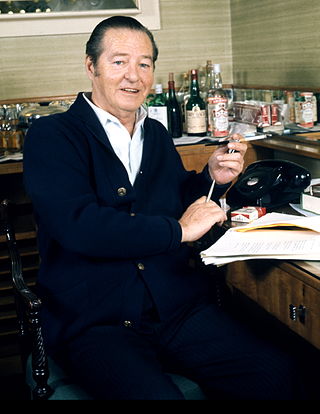
Sir Terence Mervyn Rattigan was a British dramatist and screenwriter. He was one of England's most popular mid-20th-century dramatists. His plays are typically set in an upper-middle-class background. He wrote The Winslow Boy (1946), The Browning Version (1948), The Deep Blue Sea (1952) and Separate Tables (1954), among many others.
Bettina Catherine Welch was a New Zealand-born Australia-based actress, primarily in radio and theatre and of the latter in television roles. She was best known for her role in television soap opera Number 96 as Maggie Cameron, a scheming businesswoman and fashion editor.

The Deep Blue Sea is a British stage play by Terence Rattigan from 1952. Rattigan based his story and characters in part on his secret relationship with Kenny Morgan, and the aftermath of the end of their relationship. The play was first performed in London on 6 March 1952, directed by Frith Banbury, and won praise for actress Peggy Ashcroft, who co-starred with Kenneth More. In the US, the Plymouth Theater staged the play in October 1952, with Margaret Sullavan. The play with Sullavan subsequently transferred to Broadway, with its Broadway premiere on 5 November 1953, and running for 132 performances.

Kenneth Gilbert More, CBE was an English film and stage actor.

Nineteen Eighty-Four is a British television adaptation of the 1949 novel of the same name by George Orwell, originally broadcast on BBC Television in December 1954. The production proved to be hugely controversial, with questions asked in Parliament and many viewer complaints over its supposed subversive nature and horrific content. In a 2000 poll of industry experts conducted by the British Film Institute to determine the 100 Greatest British Television Programmes of the 20th century, Nineteen Eighty-Four was ranked in seventy-third position.
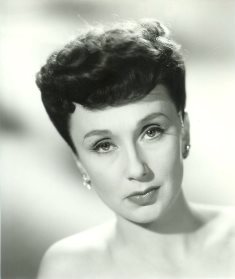
Georgette Lizette "Googie" Withers, CBE, AO was an English entertainer. She was a dancer and actress, with a lengthy career spanning some nine decades in theatre, film, and television. She was a well-known actress and star of British films during and after World War II.

Harold Thomas Gregson, known professionally as John Gregson, was an English actor of stage, television and film, with 40 credited film roles. He was best known for his crime drama and comedy roles.
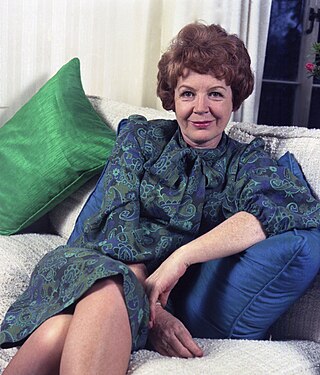
Phyllis Hannah Murray-Hill, known professionally as Phyllis Calvert, was an English film, stage and television actress. She was one of the leading stars of the Gainsborough melodramas of the 1940s such as The Man in Grey (1943) and was one of the most popular movie stars in Britain in the 1940s. She continued her acting career for another 50 years.

John Paton Laurie was a Scottish stage, film, and television actor. He appeared in scores of feature films with directors including Alfred Hitchcock, Michael Powell and Laurence Olivier, generally playing memorable small or supporting roles. As a stage actor, he was cast in Shakespearean roles and was a speaker of verse, especially of Robert Burns. He is perhaps best remembered for his role in the sitcom Dad's Army (1968–1977) as Private Frazer, a member of the Home Guard.

Eric Richard Porter was an English actor of stage, film and television.
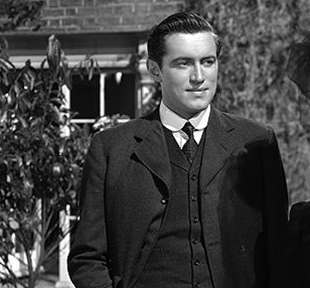
John Neil McCallum, was an Australian theatre and film actor, highly successful in the United Kingdom. He was also a television producer.
Charles Herbert Frend was an English film director and editor, best known for his films produced at Ealing Studios. He began directing in the early 1940s and is known for such films as Scott of the Antarctic (1948) and The Cruel Sea (1953).

Jean Kent, born Joan Mildred Field was an English film and television actress.
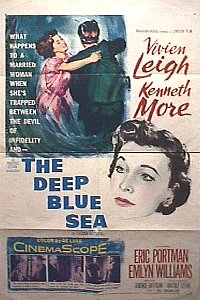
The Deep Blue Sea is a 1955 British drama film directed by Anatole Litvak, starring Vivien Leigh and Kenneth More, and produced by London Films and released by Twentieth Century Fox. The picture was based on the 1952 play of the same name by Terence Rattigan.

The Loves of Joanna Godden is a 1947 British historical drama film directed by Charles Frend and produced by Michael Balcon. The screenplay was written by H. E. Bates and Angus MacPhail from the novel Joanna Godden (1921) by Sheila Kaye-Smith.

White Corridors is a 1951 British drama film directed by Pat Jackson and starring Googie Withers, Godfrey Tearle, James Donald and Petula Clark. It is based on a novel by Helen Ashton. The film is set in a hospital shortly after the establishment of the National Health Service.

Simon and Laura is a 1955 British comedy film directed by Muriel Box and starring Peter Finch and Kay Kendall.
Deep Blue Sea or The Deep Blue Sea may refer to:
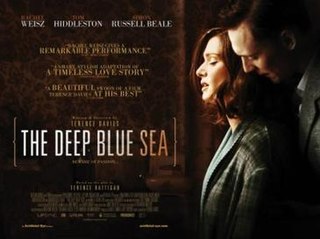
The Deep Blue Sea is a 2011 British romantic drama film written and directed by Terence Davies and starring Rachel Weisz, Tom Hiddleston, and Simon Russell Beale. It is an adaptation of the 1952 Terence Rattigan play The Deep Blue Sea about the wife of a judge who engages in an affair with a former RAF pilot. This film version was funded by the UK Film Council and Film4, produced by Sean O'Connor and Kate Ogborn.
Joan Kemp-Welch was a British stage and film actress, who later went on to become a television director. After making her stage debut in 1926 at the Q Theatre, Kemp-Welch made her film debut in 1933 and appeared in fifteen films over the next decade largely in supporting or minor roles. Occasionally she played more substantial parts as in Hard Steel and They Flew Alone.
References
- ↑ "The Deep Blue Sea (1954)". BFI. Archived from the original on 17 July 2020.
- 1 2 "BFI Screenonline: More, Kenneth (1914-1982) Biography". www.screenonline.org.uk.
- ↑ "The Deep Blue Sea". 17 January 1954. p. 14 – via BBC Genome.
- ↑ "New British star has slick comedy flair". The Australian Women's Weekly . 21 July 1954. p. 34. Retrieved 21 July 2015– via National Library of Australia.
- ↑ "'Deep Blue Sea' The Epilogue". The Birmingham Mail. 18 January 1954. p. 4.
- ↑ "Googie Withers in Rattigan Play". Evening Standard. 18 January 1954. p. 9.
- ↑ Kennedy, Ludovic (18 January 1954). "TV page". Evening Standard. p. 6.
- ↑ Vagg, Stephen (16 April 2023). "Surviving Cold Streaks: Kenneth More". Filmink.